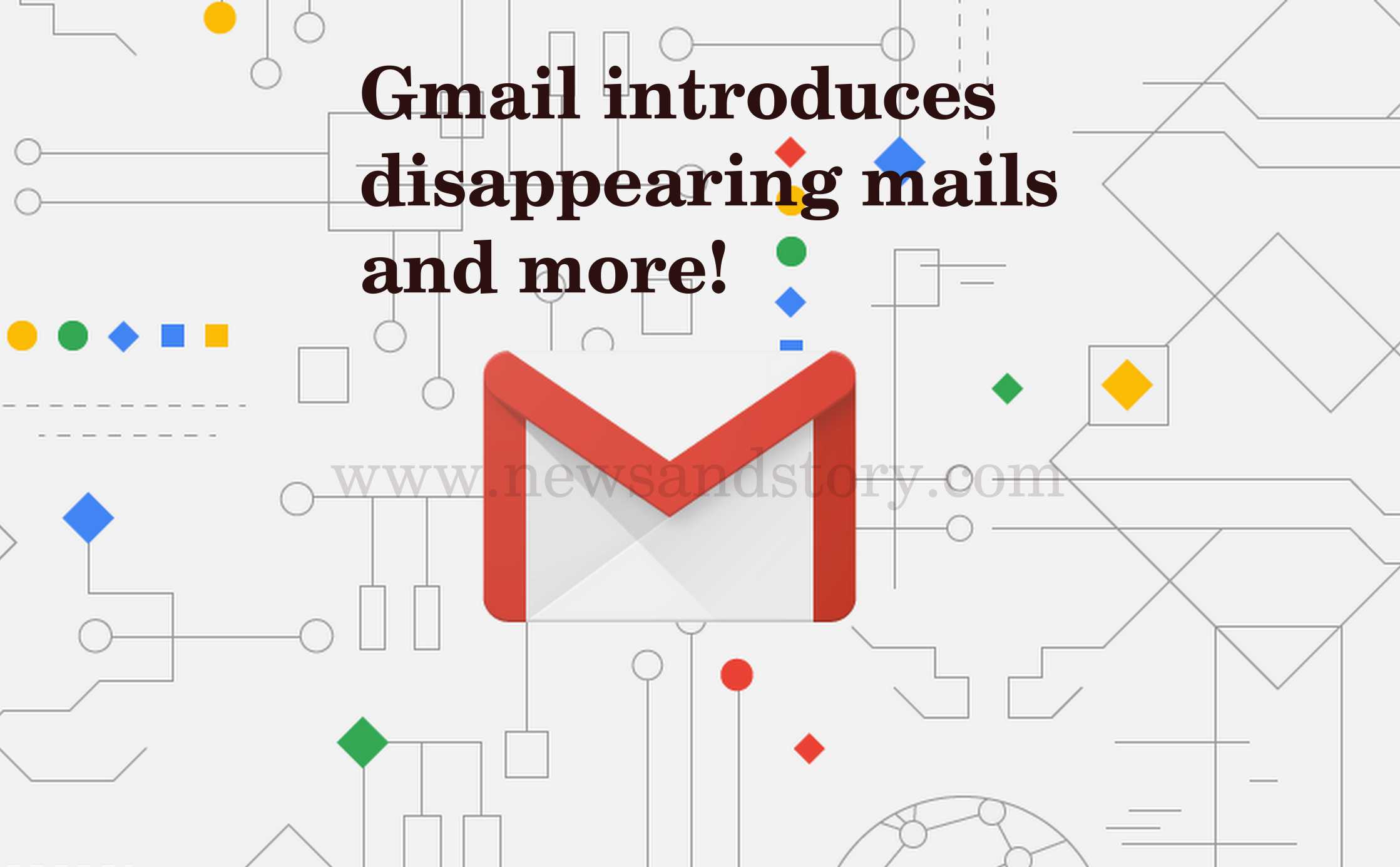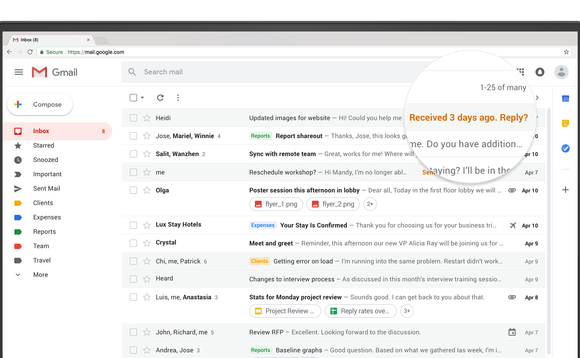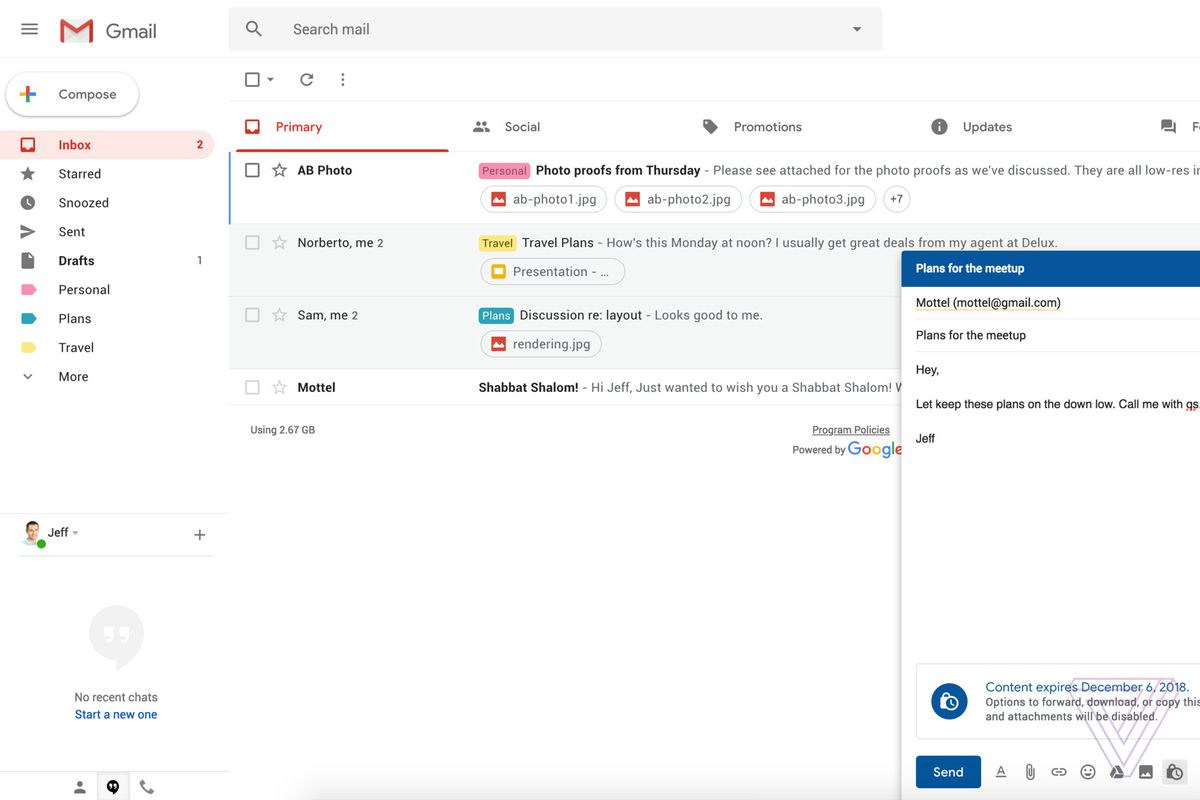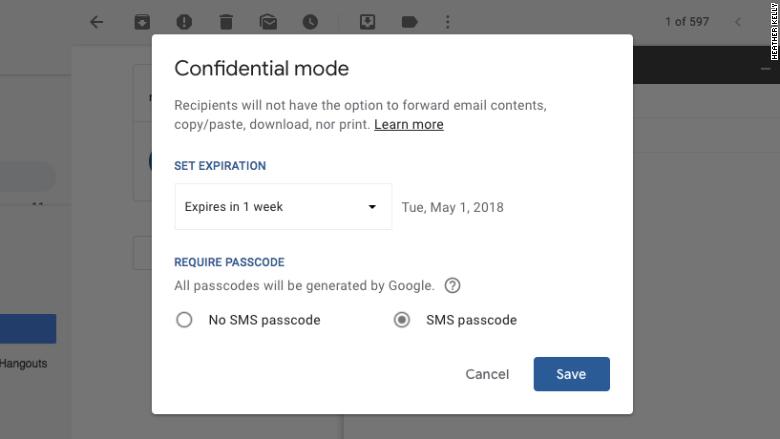Gmail introduces disappearing mails and more!
The next big thing is here or rather a more convenient thing for the Gmail users, now mails sent to you will disappear after a certain amount of time, if they are marked as self destructive emails. It will be just like the disappearing Instagram stories or Snapchat Snaps.

Do you have similar website/ Product?
Show in this page just for only
$2 (for a month)

0/60
0/180
Gmail introduces disappearing mails and more!




The next big thing is here or rather a more convenient thing for the Gmail users, now mails sent to you will disappear after a certain amount of time, if they are marked as self destructive emails. It will be just like the disappearing Instagram stories or Snapchat Snaps

.
Today, the new update has been introduced by Google and it will affect 1.4 billion users of the service. The changes are not impromptu and the experience may not change immediately unless you tap the gear icon (for settings) and turn on the new website look. In the coming months, Google will bring the new design and features to everyone, including people with corporate accounts.
How does this work?
Gmail?s AI systems ? which it dubs ?Google magic? ? are regularly scanning your inbox for clues about your behavior. Now they?ll proactively remind you if, after three days, you haven?t replied to messages that look like the kind of thing you?d normally reply to. Those messages get moved back to the top of your inbox with a warning. Google calls this ?nudging.?

Google said this feature will prevented 8% of people from missing out an email each week. To keep annoyance to a minimum, Google promises to send a max of three nudges per day. It?s on by default, but you can turn it off if you?d like.
Is this a good move by Google?
Well, to be honest, Gmail users were fed up with hundreds and thousands of emails being bombarded and then having a look to delete them, it was not convenient, and I personally as a Gmail user feel this. We get such an avalanche of emails, it?s not worth trying to delete ? or even look at ? all of them. Instead, Gmail wants us to use search and, now, artificial intelligence is to surface just the information we need. That approach requires quite a bit of faith in Google, which people do have.
There are good alternatives such as Microsoft Outlook for people who think more in folders or hope to achieve the elusive ?inbox zero.?

The new Gmail applies intelligence to solve information-overload problem and notifications. Previously, Gmail apps for smart phones and tablets sent an alert every time you got a new email in your primary inbox. Turning on notifications would cause your phone to buzz all day long. The feature of self-destruct offers a partial solution to, emails getting hacked, leaked or just plain misused; it will make old emails do a disappearing act.
Gmail's new "Confidential mode" lets you choose an expiration date for your email. Gmail isn?t the first service to offer self-destructing messages, but it will help bring it to the masses. At the bottom of every new Gmail there?s a button for ?Confidential mode? that can secure messages in a few cool ways. The most basic is to set a time limit. You can choose a month, a week, or a day.

On the other end, the recipients see they?ve received a confidential message and a warning about the time limit. They also won?t be able to forward this email to others. After their time is up, your recipients can?t see the message any more, though they can request further access.
Emails were hacked during the 2016 presidential campaign. And some people say the communication tool is out of style, compared to those like Slack, WhatsApp and Snapchat. That's why Google has taken steps to improve Gmail: ?The Confidential Mode?. It will sport a mildly cleaned-up design, snoozing and priority features, and some productivity tweaks like a calendar and tasks panel.
CONTINUE READING
Internet
Technology
International
Communication
Sandeep Semwal
Content Writer
